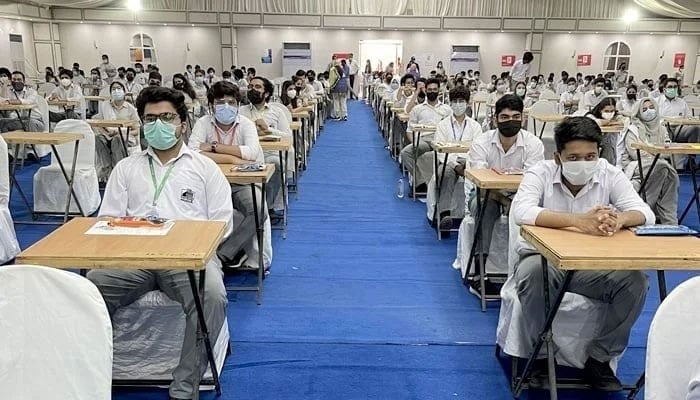
Cambridge Confirms Partial Leaks in June 2025 Exam Papers
Following reports of question papers circulating online, Cambridge International Education (CIE), part of the University Press & Assessment, confirmed that a limited leak occurred during its June 2025 AS and A Level examinations held across Pakistan . The announcement followed an extensive investigation by Cambridge’s Exam Security Team, prompted by complaints from schools and families concerned about exam integrity amid widespread social media rumors.
Scope of the Leak
The breach was mapped to three specific papers:
- AS & A Level Mathematics Paper 12: a complete question was prematurely shared.
- AS & A Level Mathematics Paper 42: parts of two questions were leaked before the scheduled exam time.
- AS & A Level Computer Science Paper 22: sections of one question were disclosed prematurely .
Cambridge emphasized that at no point was an entire paper circulated in advance. Most circulating rumors were dismissed as “false or malicious,” often linked to scam operations attempting to sell counterfeit papers .
Investigation Process and Findings
Cambridge’s Exam Security Team conducted a full-scale probe, scrutinizing reports from schools, students, and local authorities. According to the official statement issued on 18 June 2025, misleading claims were quickly debunked; only the partial leaks described were substantiated . The team successfully traced the origin of the leaks and confirmed the involvement of individuals who improperly accessed and distributed the compromised questions .
Remedial Measures Implemented
To preserve fairness, Cambridge adopted immediate corrective actions:
- All leaked questions were discounted from scoring.
- Full marks were awarded to every candidate for those items, neutralizing any unfair advantage .
- The adjustments were factored into the final grading process to maintain equity across all candidates.
This approach, according to authorities, ensures that students who were not exposed to the leaks are not disadvantaged, while avoiding the need for re-examinations and maintaining the official result timeline .
Cambridge Statements and Official Responses
Uzma Yousuf, Country Director for Pakistan, expressed empathy and concern, stating that dishonest acts have led to significant distress among students during a critical juncture of their academic careers . She acknowledged the emotional toll on young learners caused by the breach.
Dr Anthony Dawson, Cambridge’s Director of Assessment Standards, emphasized that awarding full marks for the leaked questions ensures the grading process remains “accurate and reliable” and focused on fairness .
Security Protocols and Centre Accountability
Cambridge reaffirmed its strong security framework for exam administration. All examination centres are required to comply with strict storage and handling protocols as per the Cambridge Handbook. Regular inspections and proactive security audits are routinely conducted each term . In response to the confirmed leaks, Cambridge is taking disciplinary and administrative action against implicated centres and individuals, potentially including deregistration and bans on future participation .
Regulatory and Government Engagement
Cambridge has shared detailed findings and preventive recommendations with Pakistan’s Ministry of Federal Education and Professional Training (MoFEPT) and relevant provincial authorities . Meanwhile, the issue has sparked attention within Pakistan’s legislature: a standing committee in the National Assembly reviewed evidence of leaked papers and established a sub‑committee to monitor the handling of the situation by Cambridge and local exam centres .
Impact on Students and Timeline for Results
Students are scheduled to receive their official grades on 12 August 2025, as per normal protocol. Thanks to Cambridge’s remedial measures, no candidate will need to sit for a retake, and the result release is expected to proceed without delay . Cambridge administration reassured stakeholders that the adjustments would preserve the integrity of the grading process.
Looking Forward: Strengthening Exam Integrity
Acknowledging the rarity of such incidents, Cambridge reaffirmed its zero‑tolerance stance on malpractice and scams. The organisation announced plans to enhance security for future exam series, conduct closer reviews at testing centres, and fortify measures to prevent similar breaches. Authorities have committed to continuous collaboration with local educational institutions to uphold trust in the assessment system.







